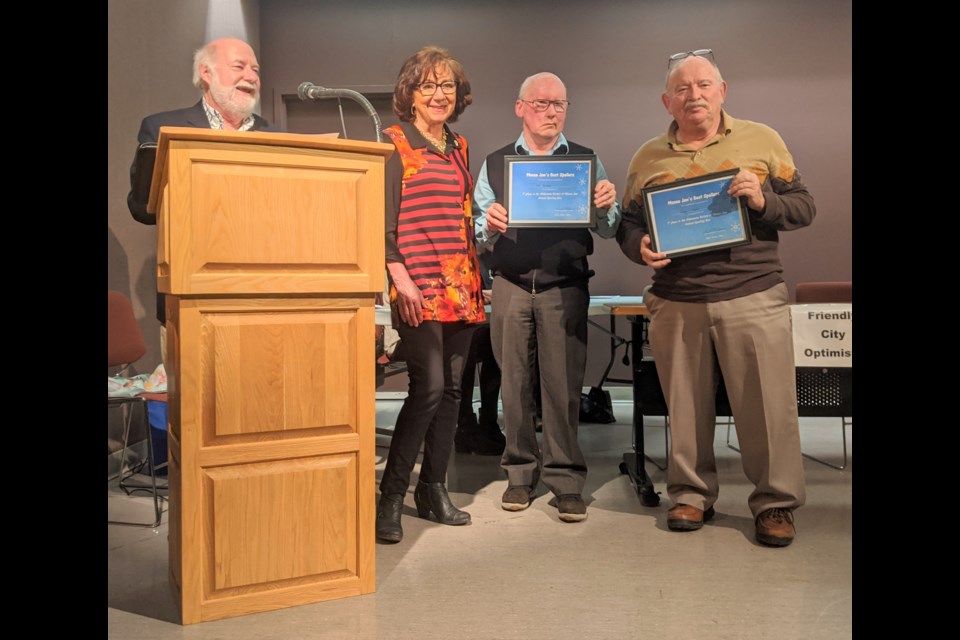Propinquity. Interstitial. Vitiate. Soliloquy. Ophthalmologist. Variegate. Heuristic. Would you be able to spell these words off the top of your head, especially in a pressure-filled situation?
That was the entertaining challenge six teams faced during the Rotary Club of Moose Jaw Wakamow’s third annual Spelling Bee and Beeyond, held Jan. 30 at the Moose Jaw Art Museum theatre. The event was a fundraiser to support and promote children’s literacy in the community and area.
The week of Jan. 26 to Feb. 1 also happened to be Family Literacy Week in Saskatchewan. This year’s theme was “Take 20 in 2020,” which encourages families to take 20 minutes each day to make learning together a daily routine.
Teams from the Conexus Credit Union, Walper-Bossence Law Firm, Moose Jaw Express, Prairie South School Division, Holy Trinity Catholic School Division and the Moose Jaw Superannuated Teachers’ Association competed against one another during the fundraiser, as a rowdy crowd cheered and laughed uproariously at how words were spelled and the definitions given from some of them.
Pershittie? That means prim or overly meticulous. Tittynope? A small amount of something left over, such as liquid in a bottle. However, all the groups came up with more side-splitting answers that were nowhere close to the true definition.
“(The evening) was wonderful,” exclaimed Rotary member Christine Boyczuk, who is also the co-ordinator of the Moose Jaw Literacy Network. “Just the participation of everybody was really wonderful, and everyone was contributing their time to promote literacy was great.
“I thought it was a very fun evening (and) very entertaining.”
Boyczuk singled out the team from the Catholic school division, laughing at how both members dressed up as nuns while the director of education dressed up as a cardinal. Her favourite part was when the teams provided definitions for some of the stranger words.
Supporting literacy is a critical goal, she said. The Rotary, the literacy network and the Optimists have been successful over the years in strengthening this area of children’s development. This is important since 40 per cent of Saskatchewan children are unprepared for school when they reach kindergarten.
“In order to really have success in school, you need to know how to read and read well,” Boyczuk remarked.
Researchers know that the critical period for reading development occurs in Grade 3. Up to that time, students are learning to read, while after that time kids are reading to learn, she continued. This is why the Rotary funds literacy activities, such as summer programs in conjunction with the school divisions, and family literacy activities at the library.
There are many things parents can do to strengthen their children’s reading skills, with one of the most important aspects being to read to children from a young age, said Boyczuk. This could also take the form of playing a game or interacting with children regularly.
By committing to quality reading time, parents can ensure their kids realize the advantages of learning good literacy habits, such as relationship bonding, strengthening and building relationships, improving academics, improving speech and developing better communications skills, mastery of language, stronger readership, improved thinking skills, developing imagination while introducing new experiences, enhancing memory concentration, and contributing to the brain’s development.
For more information about Family Literacy Week visit saskliteracy.ca.




